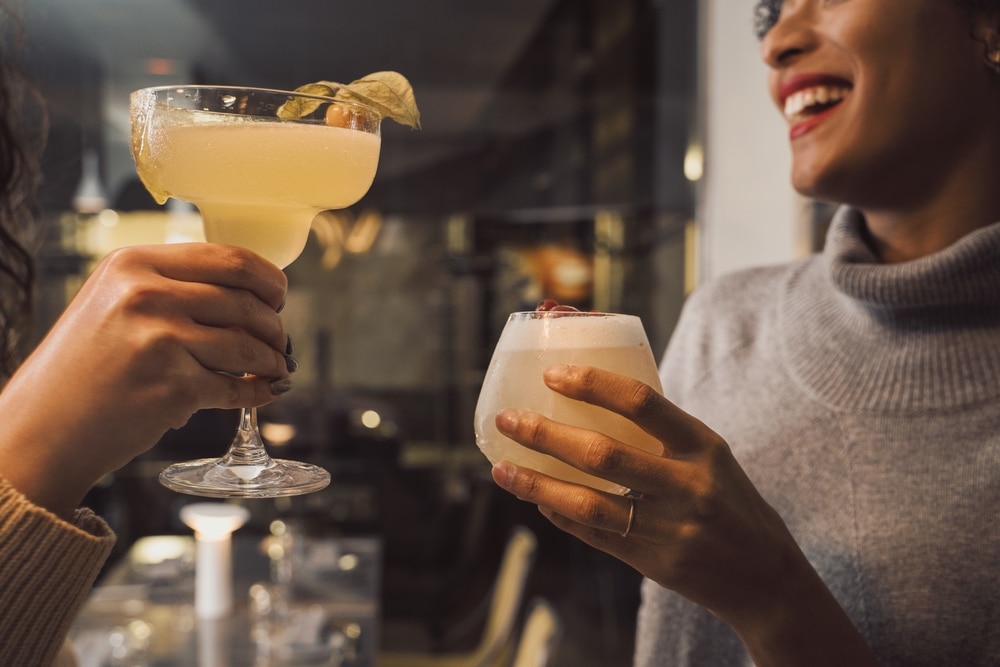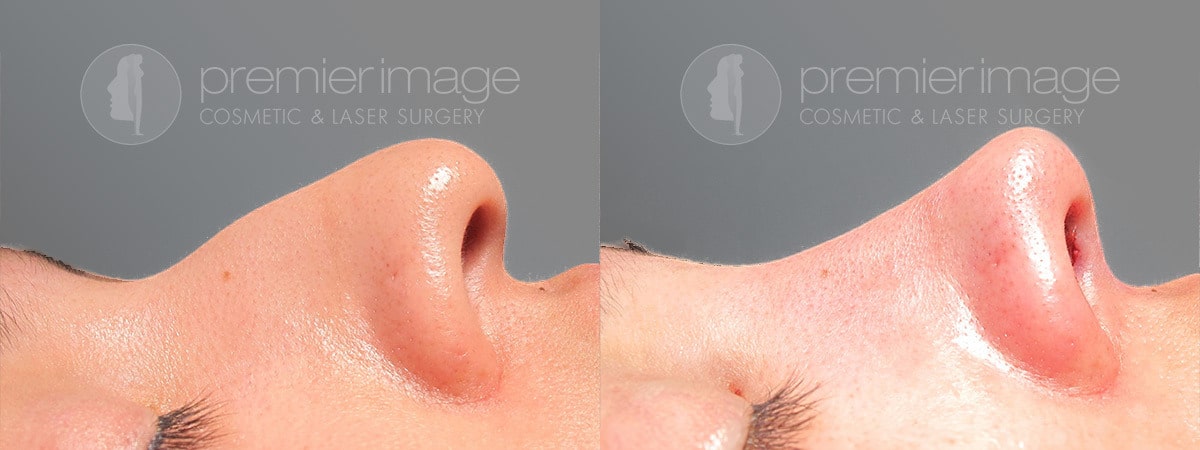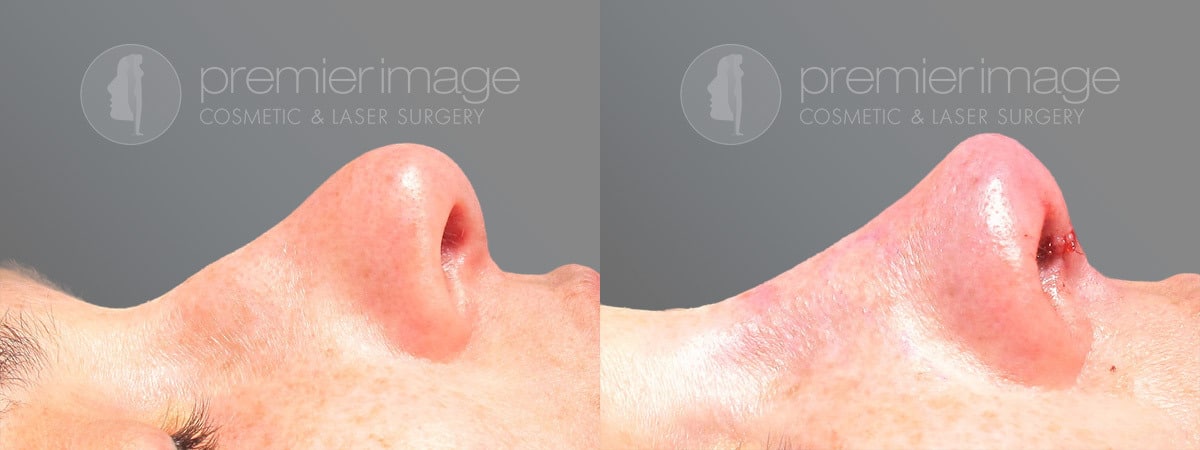Have you ever wondered how your lifestyle choices—like enjoying a glass of wine or a cocktail—might impact your plastic surgery results? Rhinoplasty, commonly known as a nose job, is a transformative surgical procedure that reshapes one of your most defining facial features. But as exciting as the results can be, it’s crucial to understand how to prepare for it—and that includes your alcohol intake.
Many people are surprised to learn just how much alcohol can affect the outcome of their surgery and recovery. From interfering with medications to slowing healing, drinking at the wrong time could complicate your rhinoplasty results. So, if you’re planning a rhinoplasty, you’ll want to keep reading to understand the role alcohol plays in the process.

Alcohol Consumption Before and After Rhinoplasty
Alcohol has a wide range of effects on the body, including blood thinning, dehydration, and immune suppression. These might not sound too serious on their own, but they can have significant consequences for someone undergoing surgery. In the context of rhinoplasty, alcohol can interfere with the body’s ability to heal, increase the risk of complications, and amplify side effects from medications. In the sections below, we’ll break down the specific timelines and risks to help you make informed choices around your procedure.
How Long After Rhinoplasty Can I Drink Alcohol?
Generally, it’s recommended that you avoid drinking alcohol (including wine) for at least two to three weeks after rhinoplasty. This gives your body time to recover and stabilize before introducing anything that could throw off your healing process. Once you reach that milestone, you may be able to gradually reintroduce alcohol—just be sure to start small and take note of how your body responds.
Even after that window, it’s important to stay cautious. Limit yourself to light drinking, avoid anything excessive, and continue following any personalized advice your surgeon provides. Everyone’s healing timeline is different, and your surgeon is the best person to evaluate whether you’re ready to safely resume alcohol after surgery.
What Are the Risks of Drinking Alcohol After Rhinoplasty Surgery?
While it might be tempting to enjoy a celebratory drink after surgery, it’s important to understand the potential consequences. Alcoholic beverages can disrupt the delicate balance your body needs during the healing process, and even a small amount may set back your recovery from surgery. The days and weeks following rhinoplasty are a critical time, and introducing alcohol too early can increase the risk of complications. Below, we’ll walk through some of the most common issues alcohol can cause during this phase. Alcohol can:
1. Increase swelling
Alcohol naturally expands blood vessels, which can worsen the swelling after surgery and prolong recovery time. This added inflammation may distort early results and make it harder to assess progress, especially in the delicate tissues of the nose after surgery.
2. Interact with medications
Many pain relievers and antibiotics prescribed after rhinoplasty can interact poorly with alcohol. Mixing the two may increase drowsiness, cause nausea, or lead to more serious side effects. It also places extra strain on your liver during a time it’s already working hard.
3. Increase the risk of infection
Alcohol can suppress immune system function, making it harder for your body to fight off potential infections. During the recovery period, even a minor infection can slow healing, compromise results, and require additional treatment or follow-up visits with your surgeon.
4. Interfere with healing
Proper healing requires rest, hydration, and optimal blood flow—all of which can be compromised by alcohol. Drinking too soon can disrupt your body’s natural recovery rhythm, delay tissue repair, and ultimately affect the final outcome of your rhinoplasty procedure.

Secure Your Safe Procedure Experience with Dr. Louis DeJoseph
Join our satisfied clients who’ve experienced safe, effective treatments.
How Long Should I Refrain from Alcohol Before Nose Surgery?
It’s generally recommended to avoid alcohol for at least two weeks leading up to your rhinoplasty. This gives your body time to reset and prepares your system for a smoother surgical experience and recovery.
As mentioned earlier, alcohol weakens the immune system, which can negatively impact your body’s ability to heal. But the concerns don’t stop there. Drinking before surgery can also introduce serious risks during the procedure itself, such as:
- Blood Thinning: Alcohol can thin the blood, increasing the likelihood of excessive bleeding during and after surgery.
- Dehydration: As a diuretic, alcohol can lead to dehydration, which is far from ideal before undergoing anesthesia.
- Anesthesia Interference: Alcohol may alter how your body processes anesthesia, sometimes requiring higher doses and making it harder to manage sedation safely.
For these reasons, steering clear of alcohol in the weeks before your surgery isn’t just a precaution—it’s an essential step toward a safer, more successful outcome.
Before and After Photos


* Each patient is unique and individual results may vary.
Work With an Expert Facial Plastic Surgeon
Choosing an experienced facial plastic surgeon for your rhinoplasty is more than a preference—it’s essential. An expert understands how lifestyle factors like alcohol can impact your outcome and will guide you through a safe and smooth recovery process. When it comes to achieving the best aesthetic and functional results, training, experience, and attention to detail make all the difference.
Dr. Louis DeJoseph is one of the few triple board-certified facial plastic surgeons in the Atlanta area. He’s a recognized leader in advanced surgical techniques and is active in both medical education and clinical innovation. With hospital affiliations including Emory Dunwoody and Northside, you can trust that your care is in the best hands. Ready to take the next step? Call us at 770-457-6303 or visit our contact page to schedule your rhinoplasty consultation today.


